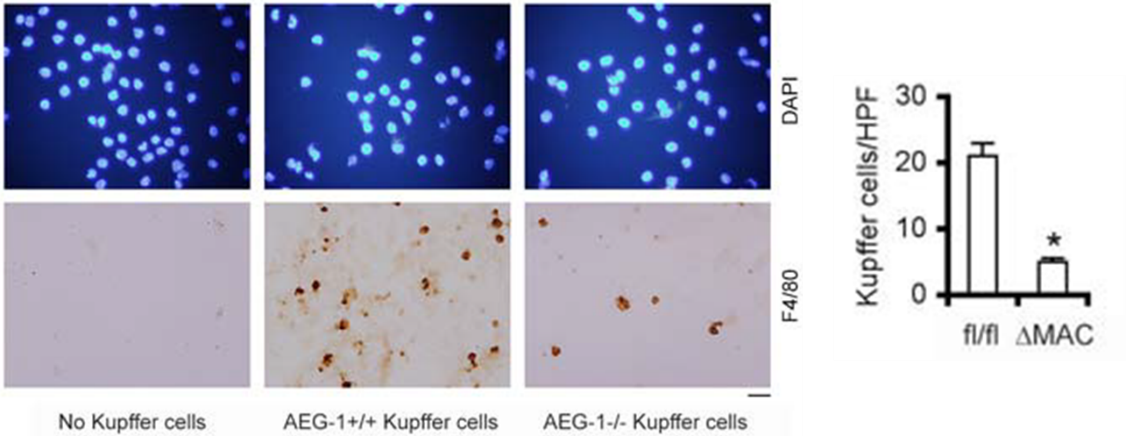Cancer Research Tool
AEG-1 Knockout Mice
Studying therapeutics to regulate inflammation in HCC
VCU researchers have developed a mouse model which would allow for the study of therapeutics to regulate and treat hepatocellular carcinoma (HCC). Chronic inflammation is central to the onset and progression of HCC, and hepatic macrophages play a critical role in the inflammatory process leading to HCC. Our researchers have found that the germline knockout of the oncogene astrocyte elevated gene-1 (AEG-1) in mice can increase resistance to inflammation and experimental HCC.
The technology
Two different types of AEG-1 knockout mice have been developed, one being a conditional hepatocyte mouse (AEG-1DHEP) and the other being myeloid cell-specific (AEG-1DMAC). After HCC was induced via treatment with N-nitrosodiethylamine and phenobarbital, AEG-1DHEP mice exhibited a significant reduction in disease severity compared to littermates, while AEG-1DMAC mice were found to be profoundly resistant. Additionally, in vitro experiments showed that AEG-1 knockout macrophages had significant decreases in migration, endothelial adhesion and efferocytosis activity, indicating that AEG-1 ablation renders macrophages functionally anergic. These results show that targeting AEG-1 in both tumor cells and tumor microenvironment could be an effective method for treating HCC.

Figure 1. Imaging which shows the reduced amount adhesion present in liver-resident macrophages (Kupffer cells) when AEG-1 is knocked out. Kupffer cells were taken from AEG-1DMAC mice.
